On March 3, LinkedIn introduced collaborative articles, a new type of content that LinkedIn publishes with the help of AI and LinkedIn users.
While it was marketed as an initiative to surface the expertise of LinkedIn users (i.e., “Unlocking nearly 10 billion years worth of knowledge to help you tackle everyday work problems”), it is also a brilliant AI-driven SEO play.
In less than three weeks, the content hub /advice/ launched almost 30,000 articles (9,000 in the last week).
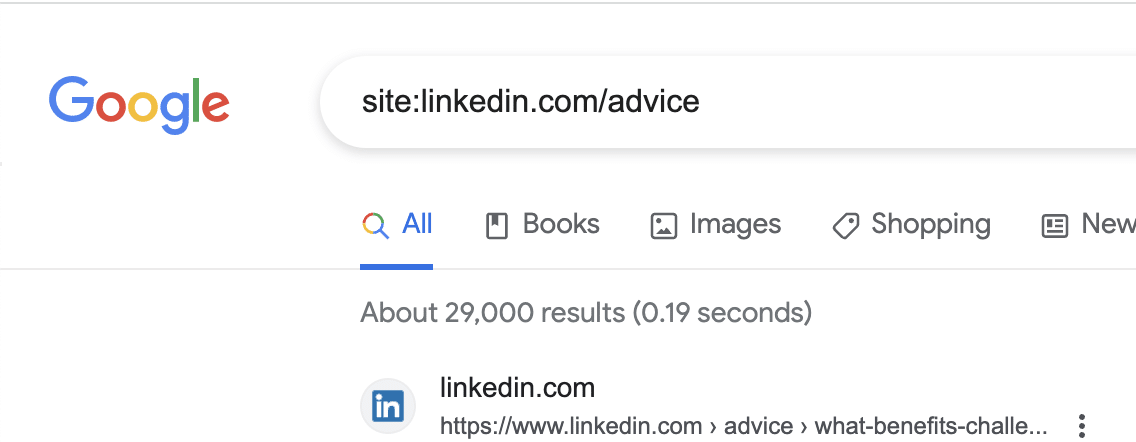
LinkedIn also gained 17,658 keywords and is estimated to gather thousands of organic sessions per Ahrefs data.
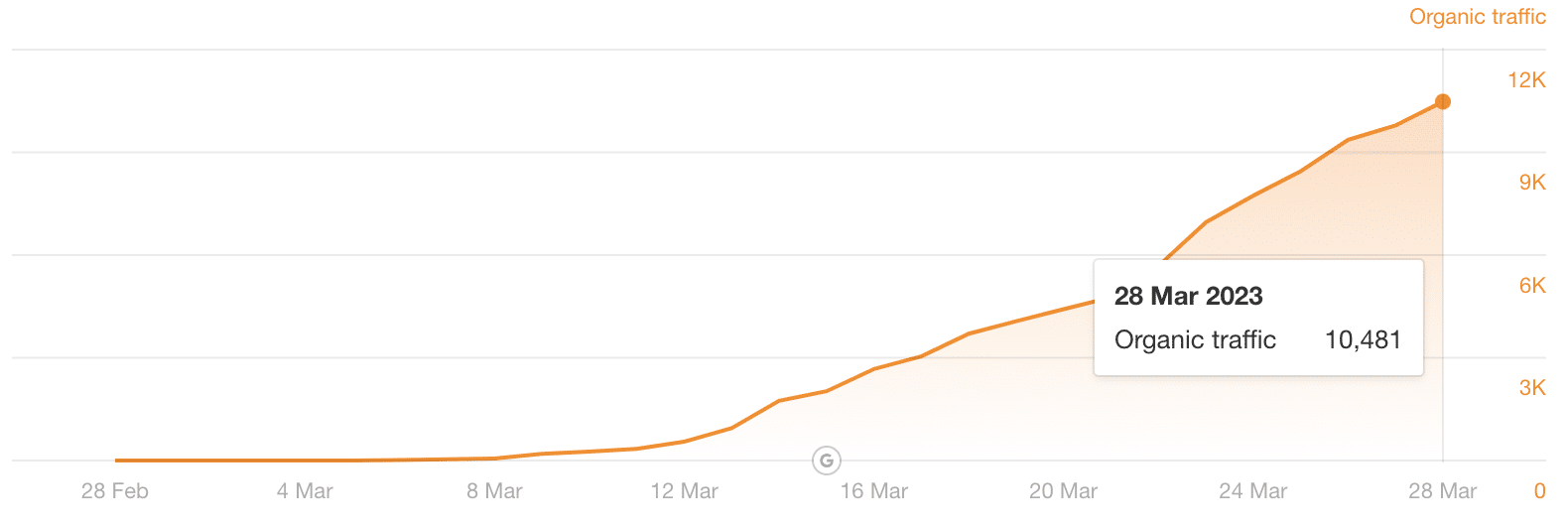
This article explores how LinkedIn’s latest AI- and member-assisted content initiative works and its impressive performance in Google search.
What is a LinkedIn collaborative article?
Collaborative articles on LinkedIn are created with AI and edited by human experts.
It allows LinkedIn to scale its content efforts with AI while maintaining quality through community insights. (Similar to how Wikipedia allows users to create and edit content.)
Collaborative articles are clearly labeled as such:

LinkedIn collaborative articles and SEO
“How do you showcase your teamwork skills on your resume?” is an example of the SEO success of collaborative articles.
It is already on Page 2 for the keyword cluster “teamwork on resume,” with 2,290 monthly searches in the U.S.
While this piece has 920 words, the average collaborative article is even longer – between 1,000 and 1,500 words. And they get longer with every quote and user insight added.
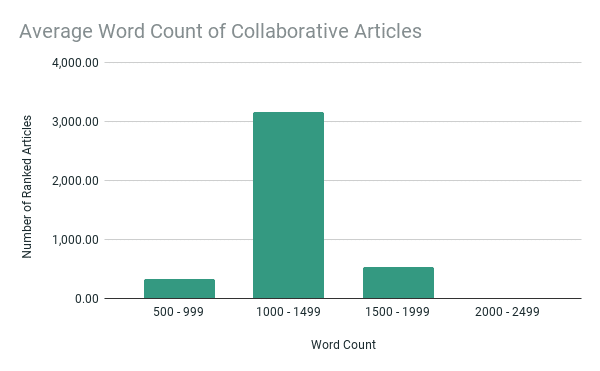
The content is clearly structured with one H1, several H2s and a unique page title and meta description – all optimized for the keyword cluster.
| URL | https://ift.tt/KYOXAqy |
| Word Count | 920 |
| Inlinks | 4 |
| Readability | Fairly Easy |
| Indexability | Indexable |
| Title 1 | Teamwork Skills Resume Examples: How to Stand Out |
| Title 1 Length | 49 |
| Meta Description 1 | Learn how to use teamwork skills resume examples to impress hiring managers. Choose relevant skills, use action verbs and results, and provide examples. |
| Meta Description 1 Length | 152 |
| H1 | How do you showcase your teamwork skills on your resume? |
| H2 | Choose relevant teamwork skills Use action verbs and quantifiable results Provide examples from different contexts |
The hub has already collected 343 referring domains., and its popularity is only growing.
Imagine creating 30,000 articles of 1,200 words each and the cost and time associated with it.
AI allowed LinkedIn to scale massively – the community component guarantees pageviews, social shares and backlinks, two perfect loops for growth and engagement.
Why would you want to contribute to a collaborative article?
You will receive exposure through the quote box where your contribution will appear:
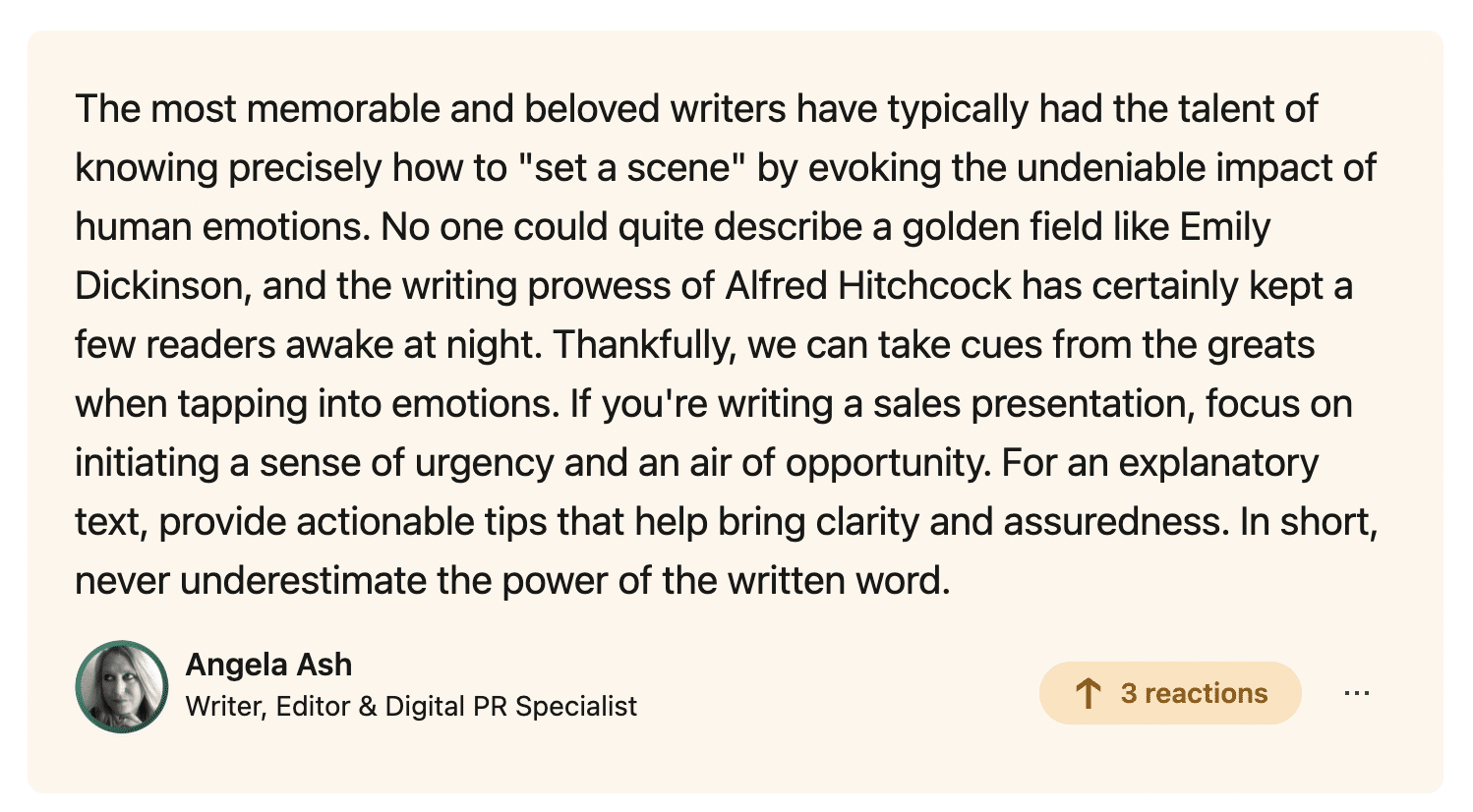
The whole advice hub is currently gaining massive momentum in Google Search.
LinkedIn is one of the strongest domains on the web, with a domain rating of 98 (Ahrefs). If your website can not rank for a keyword or topic, LinkedIn probably can.
By contributing to collaborative articles, you have a chance to:
- Gain exposure on search queries you otherwise have no chance to rank for.
- Gather credibility as an industry expert and thought leader.
- Build your professional expertise on LinkedIn.
- As LinkedIn puts it, “…to make sure that contributors are rewarded for giving their time and experience, they can earn a new Community Top Voice badge in their skill areas (e.g., “Top Sales Voice”) for adding their insights. You’ll be able to see the badge on profiles and next to contributions on the articles.”
As for selecting who can contribute, Linked states that they:
“[Identify] members who are likely to be experts in a certain topic based on their work experience, skills proficiency, and prior engagement on the platform. They must also meet high trust standards by adhering to LinkedIn’s User Agreement and Professional Community Policies.”
Understanding user-generated content on LinkedIn
There are two more article types to understand and distinguish from the collaborative articles:
- Users were already able to publish their own articles on LinkedIn and rank.
- LinkedIn already scaled up its content production massively through "LinkedIn News."
User-generated content: Publishing your own articles
Your own LinkedIn articles already get indexed on the search results. They live on the slug /pulse/. Everyone with a LinkedIn account can create these articles – similar to Medium.

The /pulse/ slug ranks for more than 7 million keywords. The good thing is you do not need to share space with the AI.
So, if you are looking to rank for a competitive term, and you do not see a LinkedIn article ranking on Page 1 yet, write your own unique and keyword-optimized articles, and with a bit of luck (and backlinks), you can secure a top position.
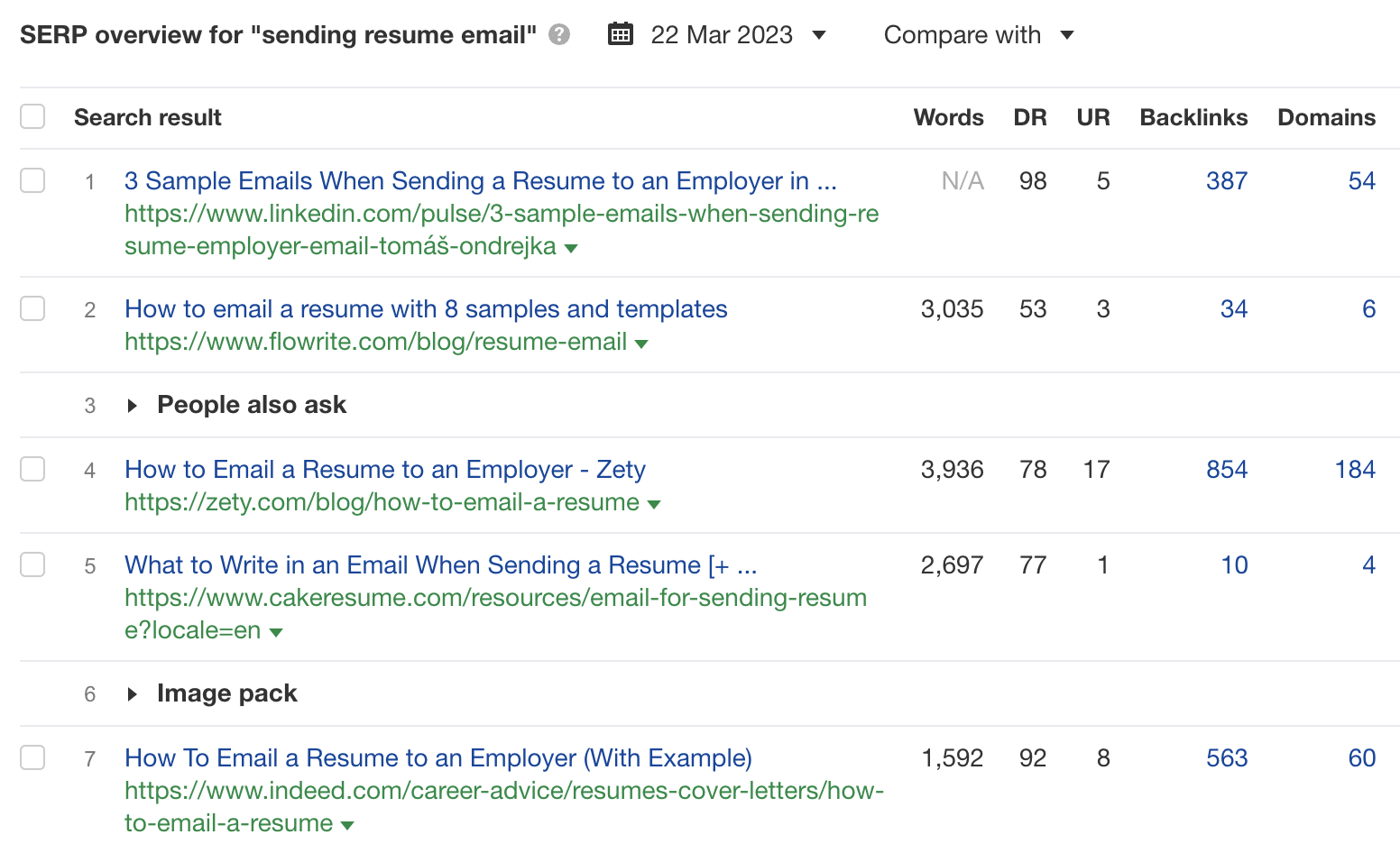
Some people call this on-SERP SEO because it allows you to own real estate on Page 1 even if your own website is not there.
Partner-generated content: LinkedIn News content
You will notice that the /advice/ slug redirects to the /pulse/ hub of the website, with the title:
- "Explore LinkedIn: Dig into what's trending on LinkedIn. Learn something new, follow a topic of interest, find inspiration and join the conversation."
Here, you will find LinkedIn News stories produced by the platform's content creators and collaborators.
Because LinkedIn's editorial team develops the content hub, it is very focused and structured, strategically speaking to the core areas of LinkedIn's professional offerings. (Not so much Linkedin, the social media platform.)
You can learn about the following:
- Career.
- Job search.
- Workplace.
- Technology.
- Job skills.
- Human resources.
- And more.
Each core pillar is broken down into subcategories. For example, "Job search" is broken into:
- Resumes and cover letters
- Interviewing
Every SEO loves this clean site structure. And /pulse/ has surely been an SEO play for LinkedIn.

Collaborative articles and skills pages
The new collaborative articles are published by skills pages, which look similar to company pages.

Some skills pages already have hundreds of thousands of followers. LinkedIn automatically adds you to relevant pages based on your profile.
Following them is a good way to get notified about new articles going live.
SEO learnings from LinkedIn's collaborative articles
These AI articles are LinkedIn's big SEO bet
The collaborative articles are a creative example of AI content at scale. The contributions by LinkedIn users add human editing, stories and examples without making the LinkedIn content team a bottleneck during growth.
Since the LinkedIn editorial team originally briefs these pages, they have a structured approach to scaling content across new areas, e.g., business planning, customer experience, employee training or event management.
The search volume for the main keywords of the first 4,069 pages ranked in the U.S. is already 710,080 per month – and more pages are getting ranked daily.
My hypothesis: Collaborative articles are LinkedIn's big SEO bet this year.
LinkedIn hints at that in its own FAQs, where they note search engines as one of the best ways to find these new articles.

Growth loop
The /advice/ hub works because it is a clever growth loop for Linkedin, as Juliana Mendez, fractional VP Growth and advisor for B2B SaaS, explains:
- "Acquisition loop: AI and user-generated content brings in new users via SEO impact. These potentially contribute to these articles and share them – which again increases SEO impact (content and referrals) and again wins more new users or engages existing ones.
- Engagement loop: Updates and new contributions trigger notifications and hence create higher engagement and likelihood of returning to the platform."
LinkedIn's brilliant SEO play
Collaborative articles align with LinkedIn's general push of becoming a place where professionals come to learn.
With their unique combination of AI and user-generated content, they just put their content marketing and SEO on steroids.
The post Decoding the SEO success of LinkedIn collaborative articles appeared first on Search Engine Land.
from Search Engine Land https://ift.tt/jqtgXrV
via https://ift.tt/4ltOkMr https://ift.tt/jqtgXrV
No comments:
Post a Comment